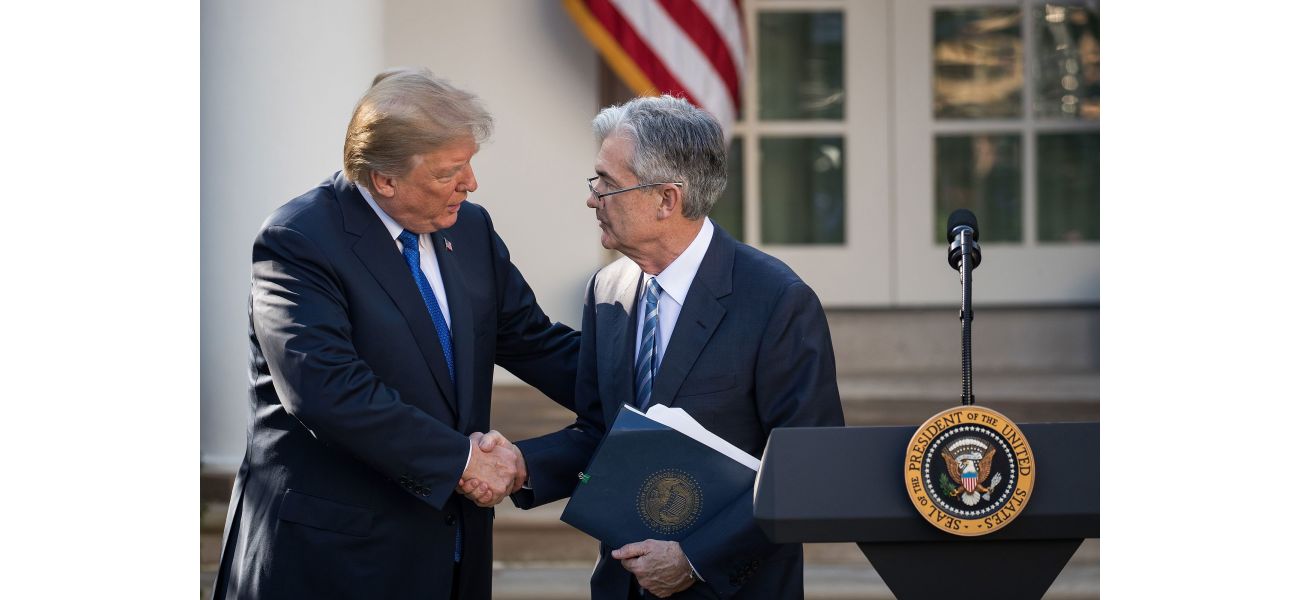Fed lowers interest rates shortly after election outcome
The Fed lowered its main interest rate by 0.25% due to a sustained decrease in inflation.
November 7th 2024.

On Thursday, the Federal Reserve made the decision to lower its key interest rate by a quarter-point. This move was in response to the steady decrease in the once-high inflation that had caused frustration among Americans and even played a role in Donald Trump's election win this week.
This rate cut comes after a larger half-point reduction in September and reflects the Fed's renewed focus on not only fighting inflation, but also supporting the job market. Currently, inflation is only slightly above the central bank's 2 percent target. As a result of Thursday's decision, the Fed's benchmark rate is now around 4.6 percent, a significant decrease from the four-decade high of 5.3 percent that was seen before the September meeting.
For over a year, the Fed had kept its rate at this high level in an effort to combat the worst inflation streak in four decades. However, annual inflation has since declined from its peak of 9.1 percent in mid-2022 to a 3 1/2-year low of 2.4 percent in September.
In a statement released after the meeting, the Fed acknowledged that while the unemployment rate has increased slightly, it remains low. On the other hand, inflation has moved closer to the central bank's target but is still considered "somewhat elevated."
During their previous rate cut in September, the Fed's policymakers had projected making further quarter-point cuts in November and December, followed by four more next year. However, the current state of the economy, with solid growth and the anticipation of even faster growth, larger budget deficits, and higher inflation under a Trump presidency, may make future rate cuts less likely.
Additionally, Trump's election has raised concerns about potential interference from the White House in the Fed's policy decisions. Trump himself has stated that as president, he should have a say in the central bank's interest rate decisions. This goes against the Fed's longstanding role as an independent institution, free from political influence, and able to make difficult decisions about borrowing rates.
During his previous term as president, Trump publicly criticized Fed Chair Jerome Powell after the Fed raised rates to combat inflation. It remains to be seen if he will do the same again in light of this recent rate cut decision.
This rate cut comes after a larger half-point reduction in September and reflects the Fed's renewed focus on not only fighting inflation, but also supporting the job market. Currently, inflation is only slightly above the central bank's 2 percent target. As a result of Thursday's decision, the Fed's benchmark rate is now around 4.6 percent, a significant decrease from the four-decade high of 5.3 percent that was seen before the September meeting.
For over a year, the Fed had kept its rate at this high level in an effort to combat the worst inflation streak in four decades. However, annual inflation has since declined from its peak of 9.1 percent in mid-2022 to a 3 1/2-year low of 2.4 percent in September.
In a statement released after the meeting, the Fed acknowledged that while the unemployment rate has increased slightly, it remains low. On the other hand, inflation has moved closer to the central bank's target but is still considered "somewhat elevated."
During their previous rate cut in September, the Fed's policymakers had projected making further quarter-point cuts in November and December, followed by four more next year. However, the current state of the economy, with solid growth and the anticipation of even faster growth, larger budget deficits, and higher inflation under a Trump presidency, may make future rate cuts less likely.
Additionally, Trump's election has raised concerns about potential interference from the White House in the Fed's policy decisions. Trump himself has stated that as president, he should have a say in the central bank's interest rate decisions. This goes against the Fed's longstanding role as an independent institution, free from political influence, and able to make difficult decisions about borrowing rates.
During his previous term as president, Trump publicly criticized Fed Chair Jerome Powell after the Fed raised rates to combat inflation. It remains to be seen if he will do the same again in light of this recent rate cut decision.
[This article has been trending online recently and has been generated with AI. Your feed is customized.]
[Generative AI is experimental.]
0
0
Submit Comment





